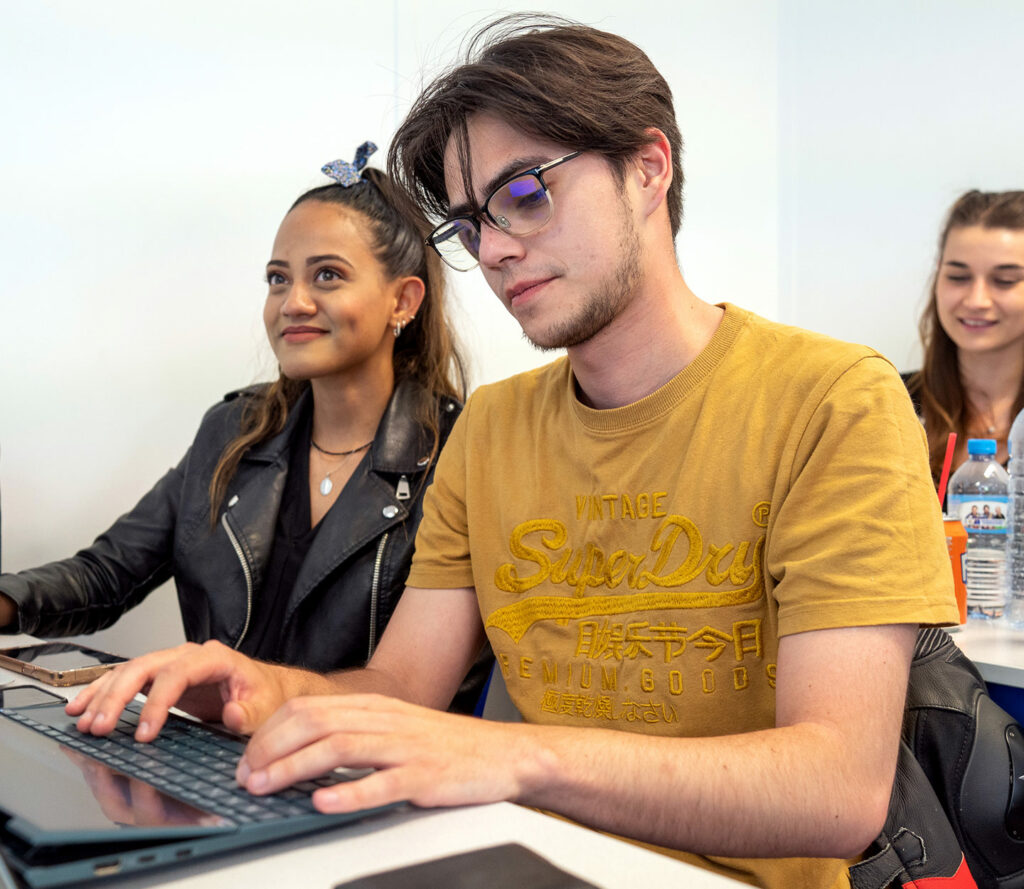
This undergraduate diploma programme aims to attract national and international students and to help them become professionals in this field. The programme is designed to reflect current industry practices and research topics and the main goal of this course is to provide a learning atmosphere that is professional, innovative, dynamic, and helpful.
In this programme, students will develop their ability for successful management of organisations, from unit to departmental level to the entire organisation, for those with certain experience. The programme will provide students with a foundation in certain parts of business management, allowing them to get a better grasp of general management and the manager’s responsibility.
1 year, Full Time.
Face to Face.
April
23, Vincenzo Dimech Street – Floriana – Malta
When it comes to assessment methods, we have included quite a variety that will allow learners with different learning styles and abilities to complete the programme successfully. Students will also have to prepare individual and team presentations, apart from written examinations. In addition, they will have to submit assignments and write a business report. Participation will carry an overall percentage of the total marks.
English language
Level 5
Eur 8.000* scholarship applicable.
Malta Further & Higher Education Authority
60 Credits
Higher Education Programme
An introduction to business accounting and finance.
In this module, learners will understand how national cultures generally shape international management, international marketing, and corporate culture.
The main goal is to provide students with a broad picture of what entrepreneurship means, with a special focus on the Fundamentals and principal of entrepreneurship and Start-up & entrepreneurship.
For the local students – Sixth form students and school leavers who have obtained the matriculation certificate with at least 2 A levels and three intermediate and at least 18 years of age.
For the international students – a diploma of completed secondary education, a diploma or certificate of a completed final examination for secondary or higher secondary school, or a senior school examination certificate and at least 18 years of age.
All students interested in further educational progress hold a level 4 or Level 5 at least 120 ECTS or equivalent.
Mature students with five years of work experience and qualifications other than Ordinary and Advanced levels are considered and at least 25 years of age.
Our English language department will interview international students to assess if the English language is up to the academic level or foreign qualification equating to Common European Framework at B2 level such as IELTS ( overall score of 5.5 ).
Any certificate that proves the digital competencies and skills will be considered an asset.
Hours per module:
a) ensure to know how to manage stocks independently;
b) manage the notions of investment, profitability, forecasting and risk management;
c) manage the process of a negotiation and standard word processing functionalities;
d) deal with the standard features of the spreadsheet to undertake further projects;
e) carry out range of activities in a junior managerial role;
f) comply the concepts and theories related to good management practice;
g) be responsible for integrating functional business knowledge in a team setting.
a) deal with analysing and developing a budget independently and within a team;
b) review five key financial indicators expressing the personal point of view within a team;
c) assess how business organizations can effectively manage working capital ;
d) understand the usefulness of financial statements to stakeholders within a company ;
e) evaluate the company’s requirements for financial reporting ;
f) deal with general accounting terminology appropriately to explain the nature and purpose of generally accepted accounting principles.
a) define the study of the intercultural phenomenon;
b) identify cultural variations: Ethnic, religious, economic, technological, political, aesthetic, and national education systems;
c) name the fundamental values of the corporate culture: rituals, “heroes”, symbols.
a) manage the fundamentals of coding;
b) manage the definition and use of the most important KPIs according to the type of campaign;
c) deal with extending visibility via the various social networks;
d) monitor digital marketing strategy;
e) demonstrate practical skills in common digital marketing tools such as Search Engine Optimisation SEO, Social media and Blogs
f) carry out tasks to use the internet for promotion using digital marketing communications.
a) know the origins of entrepreneurship;
b) manage the tools for fundraising;
c) carry out the tasks with the managerial, commercial and management specificities of Start-ups.
d) comply with the concept of entrepreneurship, its process, its different types and the different entrepreneurial contexts.
a) evaluate own work placement experience
b) reinforce the technical skills acquired in marketing – communication;
c) collaborate strategic choices with expected results;
d) manage the origins and vocabulary around personal branding;
e) monitor the effects of e-reputation;
f) ability to discuss and communicate effectively about operational and strategic activities with work colleagues.
g) use personal initiative in the work organisation;
h) apply various strategies to integrate into a team and to contribute effectively and efficiently to the team;
i) ask and act upon feedback for personal development.
" " indicates required fields
You wish to join the Ascencia Business School community ? The registration and admission procedure is simple and totally free. Our team can get back to you for any questions!
© 2022 Ascencia Malta | Terms & Conditions | Privacy Policy
Licensed by: The Malta Further and Higher Education Authority (MFHEA)
License number: 2021-018
Category: Higher Education Institution
Member of College de Paris